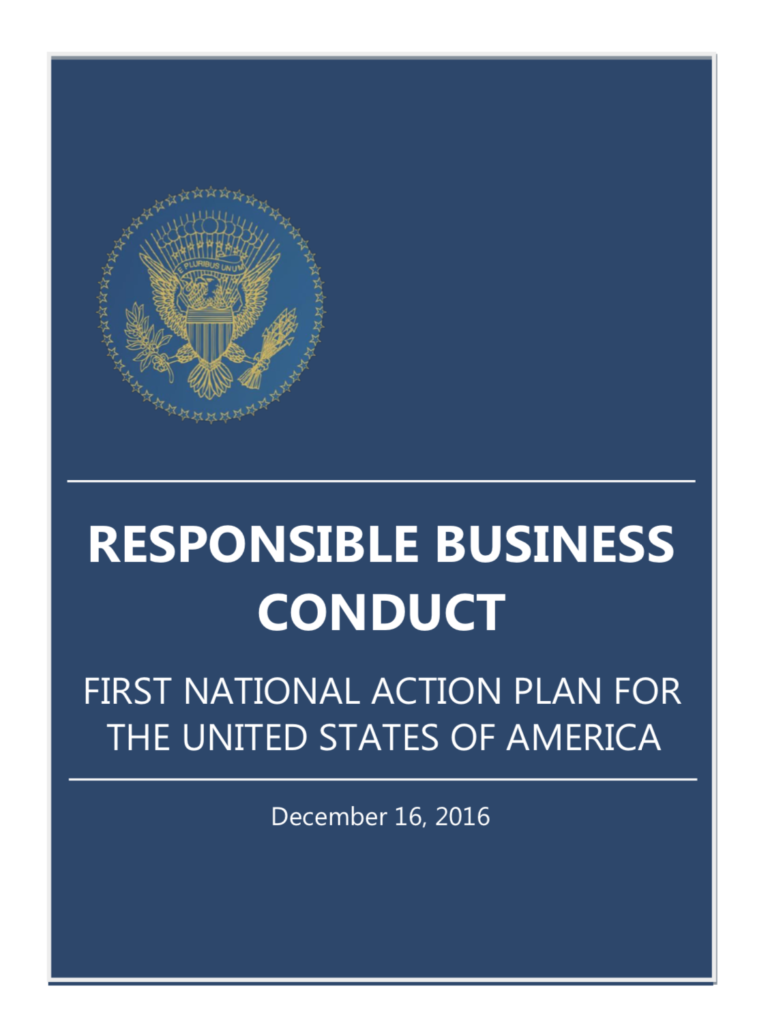On September 24, 2014, President Obama announced that the U.S. government would work with the U.S. private sector and other stakeholders to develop a National Action Plan (NAP) to promote responsible business conduct (RBC) by U.S. companies operating abroad. This effort marks the first time the U.S. government has undertaken a whole-of-government process to focus, improve, and expand its efforts to promote RBC.
RBC is a broad concept based on the idea that businesses can perform well while doing good and that governments should set and facilitate the conditions for RBC to take place. The concept places particular importance on two aspects of the business-society relationship: (1) emphasizing and accentuating the positive contributions businesses can make to economic, environmental, and social progress; and (2) recognizing and avoiding possible adverse impacts of business conduct, as well as addressing them when they occur.

